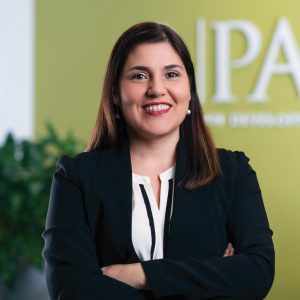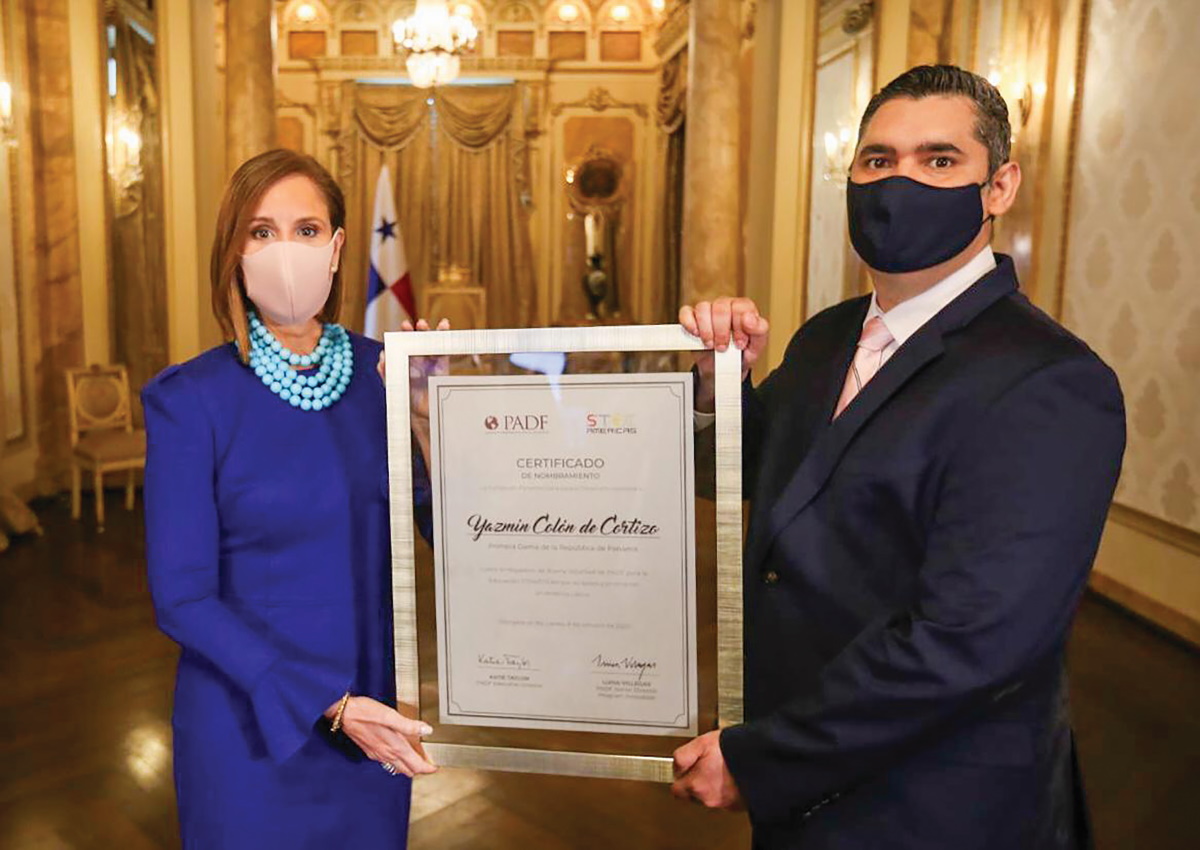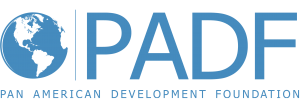“We believe in giving our children the skills they need for the 21st century.”
Luisa Villegas is Senior Director of Program Innovation, and Education Thematic Leader, at the Pan American Development Foundation. She explains why PADF is on a mission to improve STEM education in Latin America and the Caribbean
IN ITS MISSION STATEMENT, PADF SAYS, “WE BELIEVE IN GIVING OUR CHILDREN THE SKILLS THEY NEED FOR THE 21ST CENTURY.” WHAT SKILLS DOES PADF BELIEVE CHILDREN NEED AND WHY?
21st century competencies are those that allow students to thrive in today’s world. These competences are leadership, teamwork, critical thinking, creativity and the ability to use interdisciplinary skills for problem solving. These skills will help children to be successful, regardless of the type of job they choose.
HOW WOULD YOU DESCRIBE THE CURRENT STATE OF STEM EDUCATION IN LATIN AMERICA? HOW DOES IT COMPARE WITH THE REST OF THE WORLD?
It is hard to generalise such a large and diverse region. Countries like Colombia and Chile understand the power of STEM education and have embraced this methodology and incorporated it into their public policies at the national, state or local levels. Other countries still need to understand that STEM is not simply something you bring to privileged schools, or to schools that are already focusing on maths or science, or have the best computer labs. On the contrary, STEM needs to be invested in areas where children are being left behind, to give them a fair chance of succeeding.
The global pandemic is a perfect example for governments to understand the need to invest in better education and preparing future scientists and innovators who are going to be able to solve humanity’s greatest challenges. We can no longer rely on other countries to provide those solutions – all these challenges need to be solved globally and locally.
WHAT IS PADF ULTIMATELY HOPING TO ACHIEVE THROUGH ITS STEM AMERICAS INITIATIVE?
We believe that STEM education needs to become public policy in all countries in this region. We cannot do that alone, but we can build a critical mass of successful projects so that governments take note of the positive. impact that STEM education has on students.
A great example of a country where we are achieving this is Panama. Here, the work of our local partner has been so successful that it is now receiving support from the President and First Lady of Panama, and there is a collaboration in place to provide STEM training to thousands of schoolteachers. This is exactly the type of impact we want to achieve throughout Latin America and the Caribbean.
IN ITS MISSION STATEMENT, PADF SAYS, “WE BELIEVE IN GIVING OUR CHILDREN THE SKILLS THEY NEED FOR THE 21ST CENTURY.” WHAT SKILLS DOES PADF BELIEVE CHILDREN NEED AND WHY?
21st century competencies are those that allow students to thrive in today’s world. These competences are leadership, teamwork, critical thinking, creativity and the ability to use interdisciplinary skills for problem solving. These skills will help children to be successful, regardless of the type of job they choose.
HOW WOULD YOU DESCRIBE THE CURRENT STATE OF STEM EDUCATION IN LATIN AMERICA? HOW DOES IT COMPARE WITH THE REST OF THE WORLD?
It is hard to generalise such a large and diverse region. Countries like Colombia and Chile understand the power of STEM education and have embraced this methodology and incorporated it into their public policies at the national, state or local levels. Other countries still need to understand that STEM is not simply something you bring to privileged schools, or to schools that are already focusing on maths or science, or have the best computer labs. On the contrary, STEM needs to be invested in areas where children are being left behind, to give them a fair chance of succeeding.
The global pandemic is a perfect example for governments to understand the need to invest in better education and preparing future scientists and innovators who are going to be able to solve humanity’s greatest challenges. We can no longer rely on other countries to provide those solutions – all these challenges need to be solved globally and locally.
WHAT IS PADF ULTIMATELY HOPING TO ACHIEVE THROUGH ITS STEM AMERICAS INITIATIVE?
We believe that STEM education needs to become public policy in all countries in this region. We cannot do that alone, but we can build a critical mass of successful projects so that governments take note of the positive. impact that STEM education has on students.
A great example of a country where we are achieving this is Panama. Here, the work of our local partner has been so successful that it is now receiving support from the President and First Lady of Panama, and there is a collaboration in place to provide STEM training to thousands of schoolteachers. This is exactly the type of impact we want to achieve throughout Latin America and the Caribbean.
Through the STEM Americas initiative, PADF also wants to promote the participation of women and girls in STEM. STEM education can promote girls’ confidence in their maths and science abilities, and break gender stereotypes that claim that girls are not very good at these subjects. If girls gain more interest and confidence in maths and science, they are more likely to pursue STEM careers, have better career options and help close the gender gap.
THE FIRST LADY OF PANAMA YAZMÍN COLÓN DE CORTIZO HAS BEEN NAMED PADF GOODWILL AMBASSADOR FOR STEM EDUCATION. WHAT DOES THIS MEAN FOR STEM TEACHERS AND STUDENTS IN THE REGION?
The First Lady of Panama is committed to promoting STEM education not just in her country but also with her counterparts (other first ladies of the region), and in other international fora. She will help provide visibility to STEM education as an innovative and effective way to improve educational outcomes for the children and youth of our region. Ultimately, her job is to help realise PADF’s vision of every child having the opportunity to experience STEM education as a way to ignite their creativity and acquire much needed skills.
PADF WORKS WITH PARTNER ORGANISATIONS IN ARGENTINA, BOLIVIA, CHILE, COLOMBIA, ECUADOR, PANAMA AND PERU. HOW DOES IT SUPPORT THESE ORGANISATIONS?
PADF provides funding for our partners’ activities, training, technical assistance and a community to share, exchange and collaborate on best practices.
WHAT TRAINING PROGRAMMES DOES PADF OFFER TEACHERS IN LATIN AMERICA?
We are affiliated with the Organization of American States (OAS), the international body of governments of the western hemisphere. In partnership with OAS, we offer a STEM MOOC that provides a basic understanding of what STEM education should look like and the methodologies and strategies used to incorporate STEM into classrooms. We also offer scholarships to a 19-week graduate certificate that provides teachers with all the necessary skills to design STEM education programmes, learning environments and curricular content. In addition, our local partners offer their own training programmes adapted to their local needs.
PADF ALSO DEVELOPS LESSON PLANS INTENDED TO IGNITE CURIOSITY AND ENGAGE STUDENTS IN CREATIVE WAYS. HOW DO TEACHERS ACCESS THESE LESSON PLANS?
As mentioned, one of the strengths of our STEM Americas programme is the ability to support local partners and their work. They have various types of content and materials for different levels of accessibility, which are currently available in Spanish.
We are also working on an exciting initiative that will provide content relating to STEM and aerospace for teachers, parents or just about any person who is interested in learning about this topic. Stay tuned!
ON A PERSONAL LEVEL, WHY ARE YOU PASSIONATE ABOUT STEM EDUCATION?
I see STEM education as a vehicle for closing several gaps: educational, digital and gender gaps, in particular. STEM education is as an opportunity for countries to make significant gains, not just on their education performance but also on the creation of competitive jobs and improving the quality of life of its citizens.
FINALLY, WHAT DO YOU KNOW NOW THAT YOU WISH YOU KNEW WHEN YOU WERE YOUNGER?
The subject you choose to pursue in college is not as important as the soft skills you will acquire. We put so much pressure on our children to choose a career path even before they finish high school but, in my experience, life will put opportunities in front of you that will allow you to change course or even continue to explore new paths that never occurred to you when you were younger.
 ABOUT LUISA
ABOUT LUISA
Born and raised in Colombia, Luisa worked in radio and TV before pursuing an undergraduate degree in journalism and communications in Medellin, her hometown. She won a Rotary Club scholarship, which enabled her to pursue a master’s degree in Political Science in the US. Luisa started working at the Pan American Development Foundation (PADF) 15 years ago.
As Senior Director for Program Innovation, Luisa looks for ways to improve the management of PADF’s programmes and is currently leading the implementation of a PMO (Project Management Office). As the thematic leader for education, Luisa is also responsible for setting up and expanding PADF’s flagship STEM Americas programme. In addition, she leads internal and external communities of practice around the topic of education.




